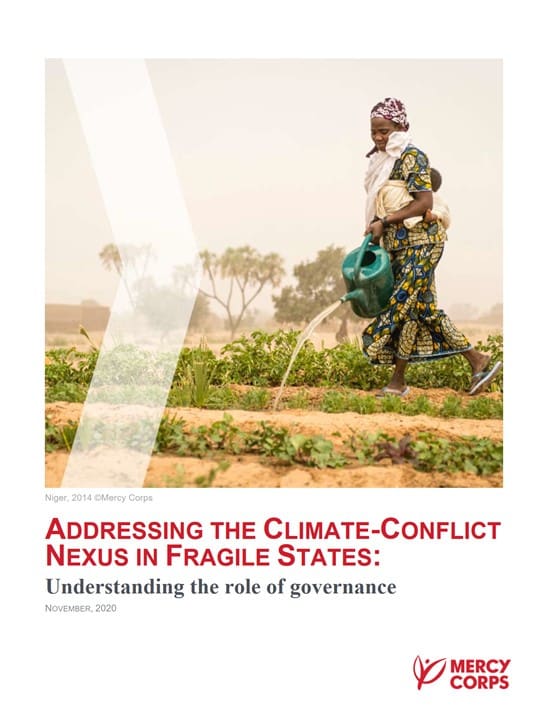This study of five countries in sub-Saharan Africa finds that while climate variability is associated with the onset of conflict, improvements in local state capacity may enable responsiveness to climate-related challenges that give rise to conflict. These findings are important in light of the fact that funding for climate adaptation is disproportionately less for fragile states, and rarely makes it outside of capitals, with only approximately 10% of climate finance reaching local levels. With COVID‑19 and other acute crises demanding increasing resources, there is an urgent need for donors to think differently about climate adaptation funding. Improving local state capacity promises to achieve multiple goals, including possibly reducing the risk of climate change increasing conflict.
Climate change will have the most pronounced consequences in fragile states: those with weak institutions that are ill equipped to effectively respond to this challenge. Increasingly, scholars and practitioners theorise that governance challenges in these countries can amplify the negative effects of climate change while investing in improving governance may be key to helping fragile states overcome them. Reliable and responsive local institutions are vital to helping communities manage the effects of climate change, for example food and water insecurity, displacement and poverty, so that they do not boil over into violent conflict.

You must be logged in in order to leave a comment